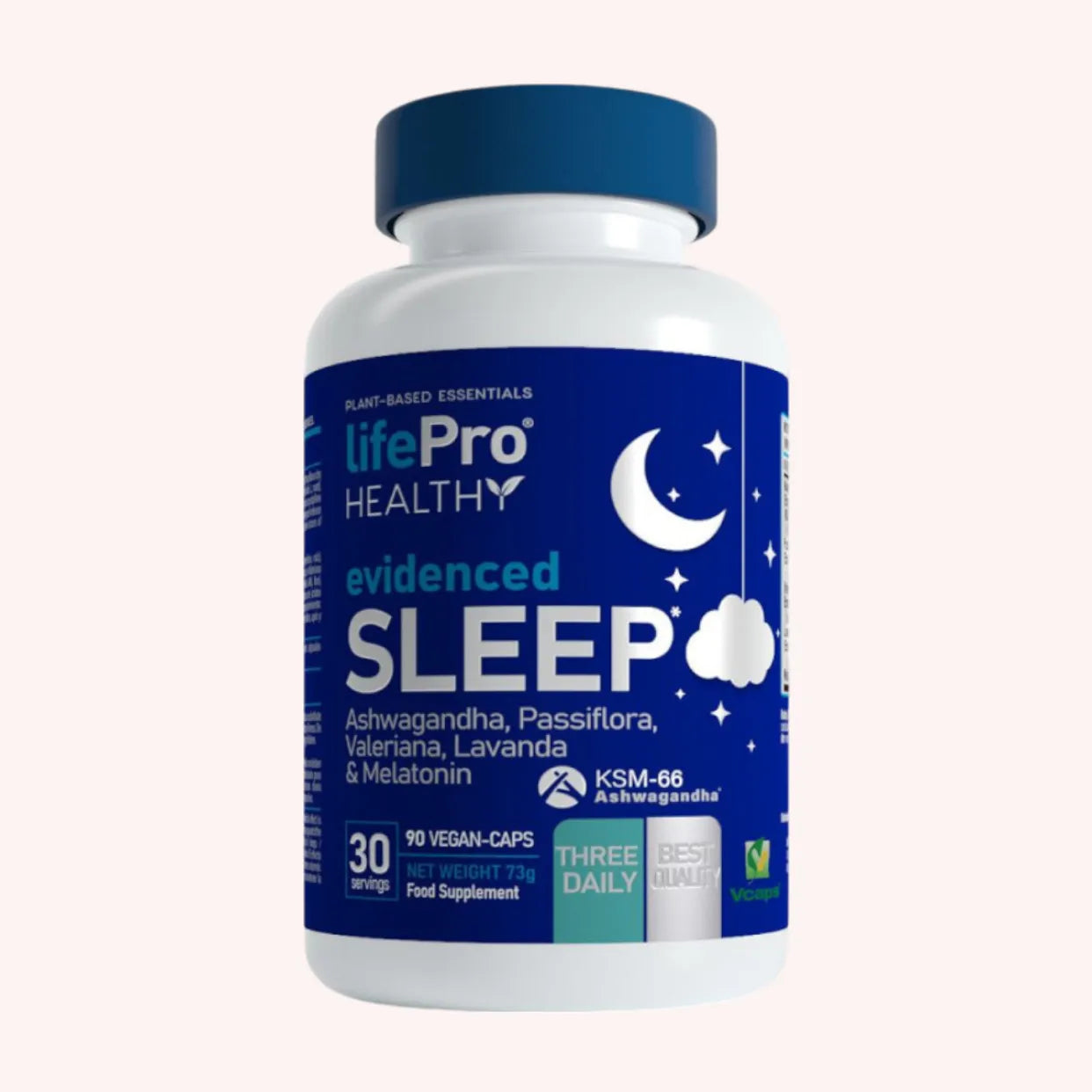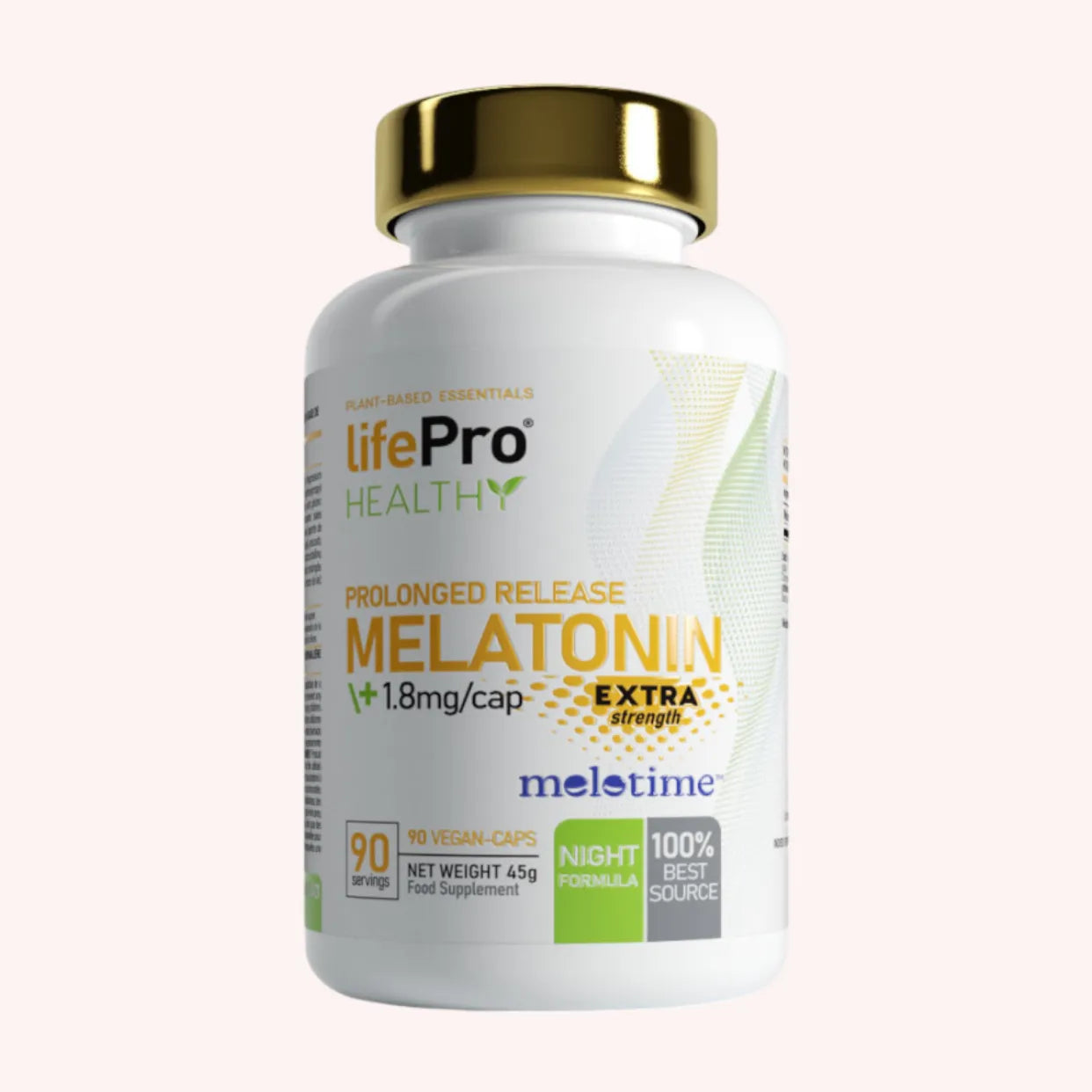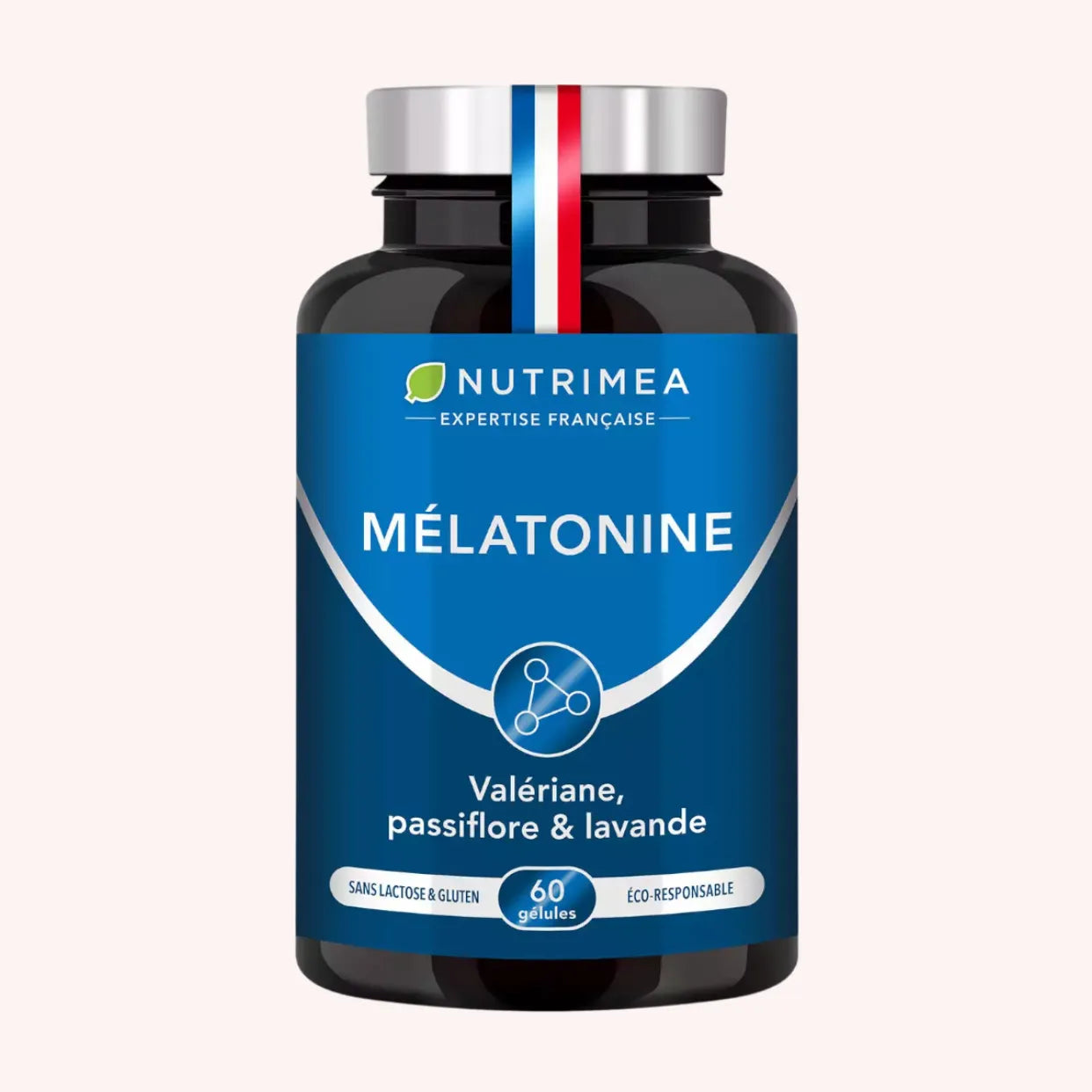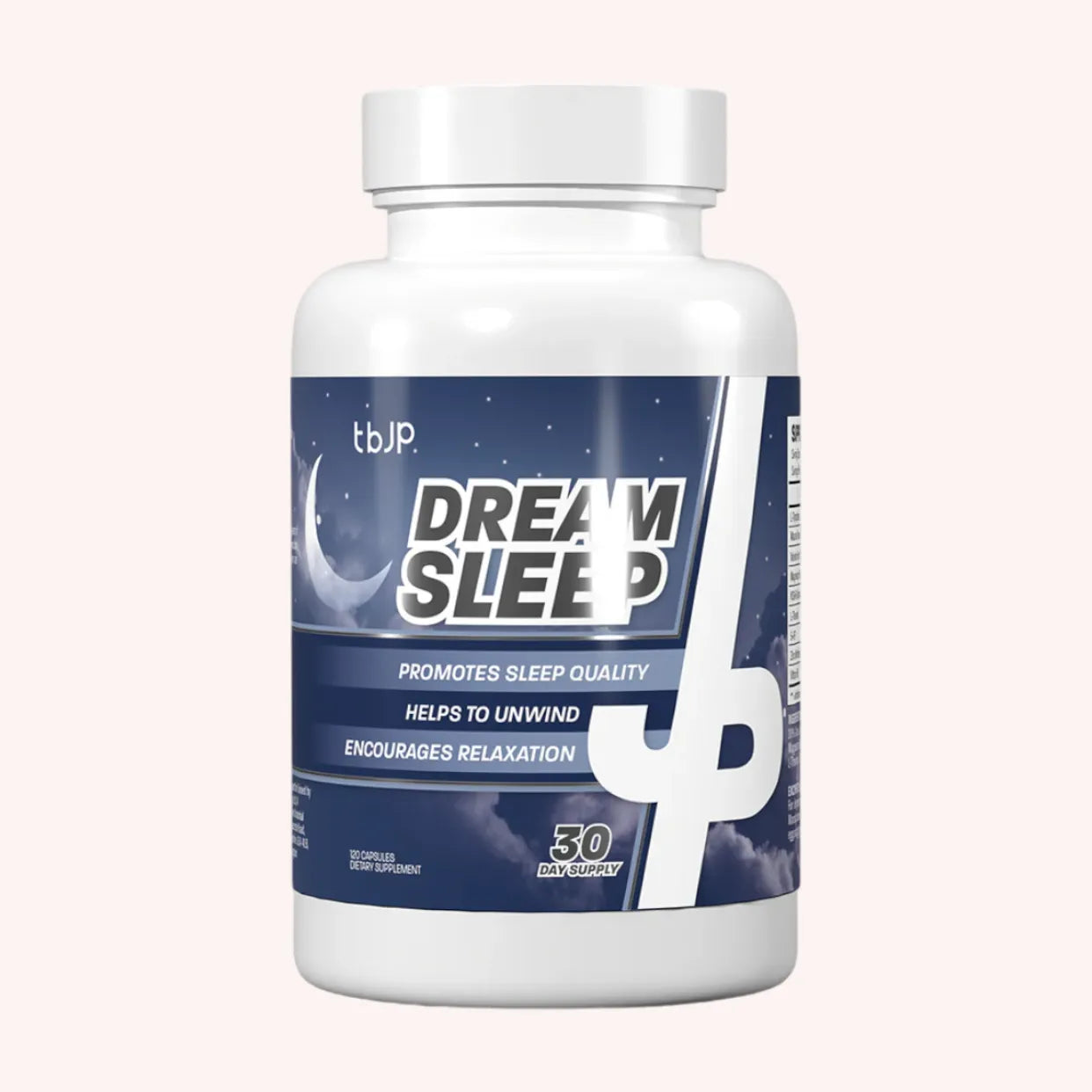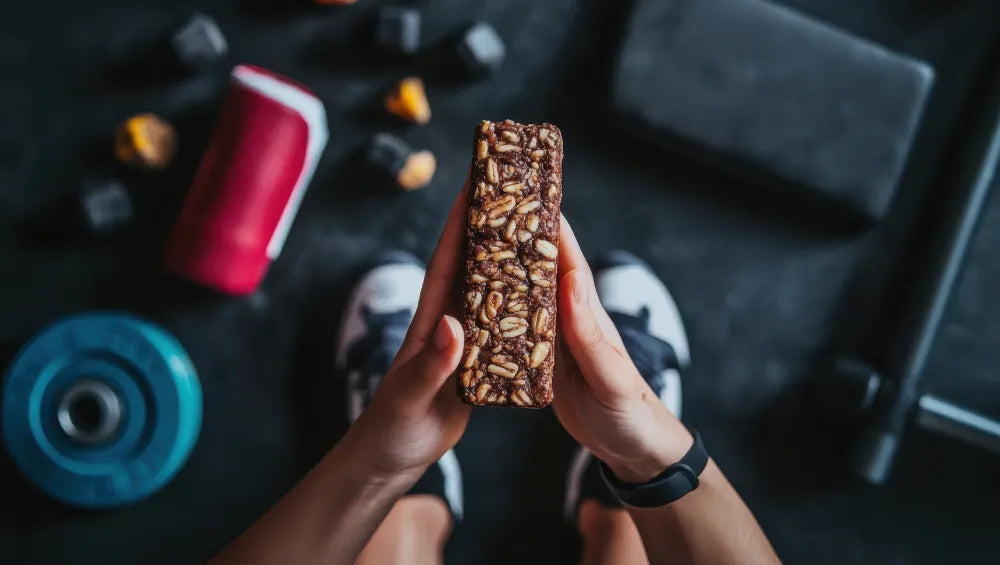Sleep is essential for mental and physical health. Yet, it often becomes difficult to fall asleep quickly and fully benefit from the recovery a good night's sleep can provide. This is especially true for physically active individuals, especially those involved in bodybuilding, fitness, or any other sport where muscle recovery plays a crucial role.
In this article, we will explore methods to improve your ability to fall asleep quickly, optimize the quality of your sleep, and thus boost your athletic performance.
Rapid Sleep: A Necessity for Muscle Recovery
Rapid eye movement sleep refers to the ability to fall asleep quickly and efficiently, allowing the body to enter restorative sleep cycles. While falling asleep quickly may seem trivial, it plays a crucial role in muscle recovery , especially after an intense workout.
But before exploring why this rapid onset of sleep is essential, it's helpful to understand how sleep works and its role in physical recovery. Sleep is divided into several 90-minute cycles, consisting of three main phases:
| Sleep phase | Description |
| Light sleep | Transitional phase between wakefulness and deep sleep. Less restorative than deep sleep but prepares the body for more intense recovery. |
| Deep sleep | The phase where physical regeneration is most intense. Muscles repair, tissues regenerate, and growth hormone production peaks. |
| REM sleep | Phase associated mainly with mental recovery, with an important role in stress management and the consolidation of motor memories. |
Getting a fast night's sleep isn't just about going to bed early; it's about getting into those restorative phases early, especially deep sleep. This optimizes muscle recovery and growth hormone production, facilitating muscle repair and performance during subsequent workouts.
A study by Simpson et al. highlights the importance of sleep for recovery and physical performance, especially for elite athletes (1). Deprivation of quality sleep can slow recovery and affect performance.
Factors like stress and anxiety can disrupt this process. By optimizing sleep onset time and reducing these factors, you ensure more restful sleep, which is essential for improving recovery and physical performance over time.
Techniques for Falling Asleep Fast: Practical and Effective Solutions
For many people, one of the biggest challenges is the inability to fall asleep quickly. Fortunately, there are several techniques that can be easily incorporated into your nighttime routine to promote rapid sleep.
- Deep Breathing: Deep breathing is one of the simplest and most effective methods for inducing a state of relaxation before bed. By practicing abdominal breathing or the 4-7-8 breathing technique, you can reduce your stress and tension levels, making it easier to fall asleep. The method involves inhaling through your nose for 4 seconds, holding your breath for 7 seconds, and then exhaling slowly through your mouth for 8 seconds. This technique helps activate the parasympathetic nervous system, which prepares the body for sleep.
- Meditation and Yoga: Yoga and meditation are ancient practices proven to reduce stress and improve sleep quality. Yoga before bed can include simple postures, such as Child's Pose or Corpse Pose , which promote relaxation and muscle release. This prepares the body to fall asleep faster and more deeply.
- Limit screen time: One of the main causes of modern insomnia is prolonged exposure to screens before bed. The blue light emitted by phones, tablets, and computers disrupts the production of melatonin , a hormone essential for regulating sleep. To promote rapid sleep, it is recommended to limit the use of electronic devices at least 30 minutes before bedtime.
- Create a sleep-friendly environment: The sleeping environment plays a crucial role in sleep quality. A dark, quiet, and cool bedroom promotes rapid sleep onset. Use blackout curtains to block out light, reduce ambient noise, and ensure the room temperature is ideal for sleep.
- Respect your biological rhythm: Respecting your biological clock is essential for quality sleep. Try to go to bed and get up at the same time every day, even on weekends. This helps regulate your circadian cycle, making it easier to fall asleep faster. A regular routine helps the body prepare mentally and physically for sleep.
- Avoid stimulants: Consuming stimulants, such as caffeine, can have a major impact on sleep quality, even several hours after ingestion. Caffeine, in particular, remains active in the body for 6 to 8 hours, which can significantly delay falling asleep and disrupt the natural sleep cycle. Therefore, it is strongly recommended to avoid caffeinated beverages (coffee, tea, or energy drinks) in the afternoon and evening. If you need a boost before an evening workout, you can opt for caffeine-free pre-workout supplements, which offer a stimulating alternative without affecting your ability to fall asleep later in the night.
Food Supplements for Sleep: Melatonin and Other Solutions
Some sleep supplements may also help improve sleep quality and reduce the time it takes to fall asleep. However, it is crucial to consult a healthcare professional before using these products.
| Food supplement | Description | Benefits for sleep |
| Melatonin | Hormone naturally produced by the body to regulate the sleep-wake cycle. | Helps restore normal circadian rhythm, promotes rapid sleep onset and improves sleep quality. |
| Magnesium | Essential mineral that regulates nerve and muscle function. | Helps relax muscles, reduces stress and improves sleep quality. |
| GABA | Inhibitory neurotransmitter amino acid. | Relaxation aid for better sleep. |
Supplements such as melatonin, magnesium, and GABA should generally be taken 30 to 60 minutes before bedtime to promote rapid sleep onset and improve sleep quality. However, it is important to consult a doctor before starting any supplement, especially if you have a medical condition or are taking medication.
Diet to Optimize Your Sleep: The Good and Bad Choices
What you eat before bed can affect your lifestyle. Here are the foods to eat and avoid to help you fall asleep quickly:
Foods to favor
- Rich in magnesium: Almond butter , spinach, bananas, pumpkin seeds and dark chocolate to promote relaxation.
- Lean proteins: Chicken, turkey, fish (salmon, mackerel) for serotonin production.
- Dairy products: Plain yogurt, hot milk, cottage cheese for their tryptophan content.
- Soothing infusions: Chamomile, valerian, lavender and linden for their relaxing effect.
Foods to avoid
- High in caffeine: Coffee, tea, sodas, and energy drinks, as caffeine is a stimulant.
- Fatty foods: Fried foods, fast foods, and spicy foods, which slow down digestion and make it difficult to fall asleep quickly.
- Refined sugars: Sweets, cakes, and sugary sodas, which disrupt blood sugar levels and sleep.
Choose a balanced diet and avoid stimulants to improve the quality of your sleep and make it easier to fall asleep quickly.
Stress and Sleep: Why Managing Stress Is Essential for Fast, Restful Sleep
Stress is one of the most common factors that disrupt the sleep cycle. It acts as a real obstacle to falling asleep quickly and the overall quality of sleep. Not only can it prolong the time it takes to fall asleep, but it can also disrupt natural sleep cycles, reducing the physical and mental recovery needed for optimal performance, particularly among athletes.
Stress and its effects on the body
Stress triggers physiological responses in the body, including increased production of the stress hormone cortisol . Cortisol is essential for managing stressful situations, but when produced in excess, it can disrupt the body's natural balance, affecting the ability to relax and fall asleep quickly. During stressful situations, the production of relaxation hormones like melatonin is reduced.
This phenomenon can lead to difficulty falling asleep, lighter sleep, and frequent awakenings during the night. Stress can also disrupt REM sleep, the phase that plays a crucial role in mental recovery, emotional management, and memory consolidation. This type of sleep is particularly important for athletes, as it promotes stress management and improved physical performance.
How stress disrupts sleep onset and sleep quality
-
Stress delays sleep: When a person is stressed, they have difficulty relaxing before sleep. This phenomenon is called mental rumination, where negative thoughts keep going on and on, preventing the brain from calming down.
- Stressed people spend more time thinking about their worries before they can relax.
- This process can be amplified by anxiety, which itself is fueled by a regular lack of sleep.
-
Stress fragments sleep: Stress not only affects sleep onset, but it can also lead to more fragmented sleep. Even after falling asleep, a stressed person may wake up frequently during the night.
- These awakenings are often linked to vivid dreams or intrusive thoughts that disrupt the continuity of sleep.
- This fragmentation prevents the body from resting and regenerating properly, which can worsen stress over time.
How to manage stress to help you fall asleep
There are several strategies to reduce stress and improve sleep quality. Here are some effective approaches:
Practice relaxation techniques
Relaxation is essential to counteract the effect of stress on sleep. Techniques such as deep breathing , meditation , yoga , or visualization can help reduce stress and calm the mind before bed.
The 4-7-8 breathing method mentioned above is a particularly useful technique for relaxing the body and promoting rapid sleep by reducing cortisol and increasing melatonin production.
Create a relaxing environment
A calm, sleep-friendly environment is essential for those suffering from stress. This includes a dark , quiet , and cool space with a comfortable mattress and pillows. Additionally, avoiding screens before bed helps limit stimulation and make it easier to fall asleep.
Managing daily stress
Stress can't be completely eliminated, but it can be effectively managed with a balanced daily routine . Activities like moderate exercise, relaxation time, a healthy diet, and stress management practices like writing or crafts can help reduce overall stress and prepare the body for better nighttime recovery.
Using dietary supplements for stress
Certain natural substances have been shown to be particularly effective in supporting stress and promoting restful sleep. Stress supplements such as GABA , ashwagandha , and ginseng are known for their relaxing properties and ability to support the nervous system. These supplements help reduce anxiety, improve stress management, and promote a state of calm conducive to better sleep.
- GABA: A natural neurotransmitter that helps reduce excessive brain activity, thereby reducing anxiety and making it easier to fall asleep.
- Ashwagandha: An adaptogenic herb that supports the body and mind during times of intense stress, mental tension, or nervous tension. It promotes optimal relaxation, improves stress resistance, and aids sleep.
- Ginseng: Known for its energizing effects, ginseng helps reduce stress by balancing energy and supporting the body's resilience to stress. It is also effective in combating fatigue, improving concentration, and maintaining physical and mental vitality, especially during convalescence or exhaustion.
However, before introducing any dietary supplement into your routine, it is essential to consult a healthcare professional. This ensures safe intake and helps avoid interactions with other supplements.
Conclusion: Optimizing Your Sleep for Peak Performance
In short, rapid sleep is essential for maximizing your athletic performance and accelerating muscle recovery. Whether you're an amateur or professional athlete, incorporating practices such as deep breathing, yoga, and screen time management can greatly improve the quality of your sleep.
Remember to consult a healthcare professional before taking any supplement, and remember that balancing good sleep hygiene with a sleep-friendly environment is essential for best results.
Sources:
- Simpson, NS, Gibbs, EL, & Matheson, GO (2017). Optimizing sleep to maximize performance: implications and recommendations for elite athletes . Scandinavian Journal of Medicine & Science in Sports, 27(10), 1029-1040. DOI: https://onlinelibrary.wiley.com/doi/10.1111/sms.12703
- Comai, S., Gobbi, G. (2024). Melatonin, Melatonin Receptors and Sleep: Moving Beyond Traditional Views . : https://pubmed.ncbi.nlm.nih.gov/39400423/
- Zisapel, N. (2018). New perspectives on the role of melatonin in human sleep, circadian rhythms and their regulation . : https://pubmed.ncbi.nlm.nih.gov/29318587/





